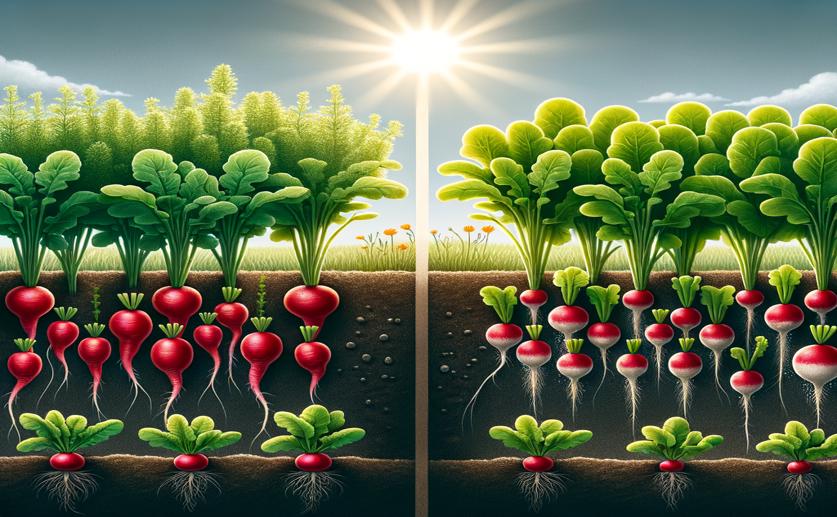
Comparing Radish Growth: Impact of Worm Tea and Compost on Plant Development
Jenn Hoskins
28th July, 2024

Image Source: Natural Science News, 2024
Key Findings
- The study was conducted by the Government Arts College to investigate the effects of vermiwash and vermicompost on radish growth
- Radish plants treated with both vermiwash and vermicompost showed significantly enhanced growth compared to other groups
- Key growth metrics such as germination rate, leaf number, leaf size, shoot length, chlorophyll content, and tuber yield were all markedly improved in the combined treatment group
AgricultureEnvironmentPlant Science
References
Main Study
1) Comparative growth analysis of Raphanus sativus L. (Radish): effects of vermiwash and vermicompost applications on plant development
Published 27th July, 2024
https://doi.org/10.1007/s44187-024-00101-y
Related Studies
2) Vermiwash: An agent of disease and pest control in soil, a review.
3) Humic substances developed during organic waste composting: Formation mechanisms, structural properties, and agronomic functions.
4) Phytohormones Regulate Accumulation of Osmolytes Under Abiotic Stress.



 16th July, 2024 | Jim Crocker
16th July, 2024 | Jim Crocker